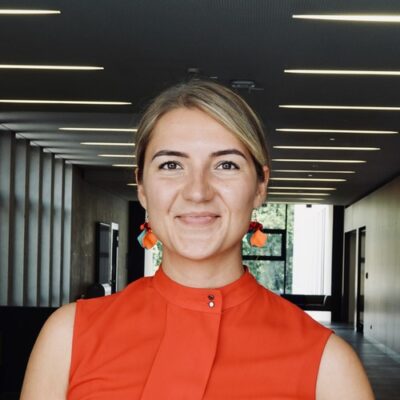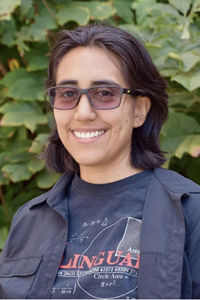Play My Math PMM

Title: Play My Math PMM
Project duration: 01.12.2024 – 31.05.2026
Research area: Ed-tech, music and mathematics teaching and learning, Social-emotional learning.
Play My Math (PMM) is a novel educational technology designed to help children develop a deep conceptual understanding of complex mathematical concepts through collaborative music composition. PMM engages learners through rhythmic challenges that turn abstract mathematical principles into tangible, audible and social experiences. It is co-developed at the Humboldt Science Center for Child Development (HumanKind) at Leipzig University. To create an emotionally rewarding and cognitively stimulating environment for children, it combines insights from developmental psychology, music pedagogy, and learning science.
By turning math into a collaborative creative process, PMM addresses motivational barriers and math anxiety that are common in early education. In Addition, it offers a playful yet rigorous pathway to one of the most difficult yet important foundational topics in math: fractions.
Problems and Aims
Education systems around the world face two urgent problems: a widespread decline in math performance and a lack of student motivation in early math education. While technology and careers in STEM are growing rapidly, fewer students feel capable nor confident in mathematics. In particular, fractions represent a critical bottleneck in early math learning: they are the first truly abstract concept introduced in primary school. Therefore they form the cognitive foundation for more advanced topics such as algebra.
At the same time, current teaching approaches often fail to link abstract mathematical content with meaningful, embodied experiences. This leads to increased anxiety, low self-efficacy, and ultimately disengagement. PMM aims to close those gaps by making math personal, creative and collaborative. And by leveraging music as a medium to bring fractions to life and foster a more intuitive, emotionally grounded learning process.
Practical Example
In a typical primary school classroom, teachers often struggle to help children understand fractions in a way that feels relevant and enjoyable. PMM offers a hands-on, interactive alternative: children visualize fractions using bar graphs, pair them with rhythmic patterns, and compose musical sequences collaboratively. Each mathematical operation – whether it’s combining, comparing, or simplifying fractions – produces a musical outcome that reinforces the underlying logic.
Rather than practicing decontextualized exercises, students build musical compositions that reflect their understanding of math. The result is a multi-sensory, collaborative, and intrinsically motivating learning experience that has shown early success in pilot studies. Importantly, PMM also helps children develop social-emotional skills, such as cooperation and empathy, as they co-create music with peers.
Technology
Play My Math is a web-based application that integrates interactive visualizations, audio feedback and collaborative music tools into a unified learning interface. Students can manipulate bar representations of fractions and hear the corresponding rhythmic output. This adapts in real-time as they edit their inputs. The platform is currently being expanded to include a broader curriculum on fractions, adaptive learning pathways, and authoring tools for educators. The underlying architecture is designed to support learning analytics. So that children’s engagement and progress can be monitored and used to tailor future instruction. PMM also aims to integrate accessibility and inclusion features, ensuring the system supports diverse learners across different contexts.
Outlook
PMM has the potential to transform how we teach foundational math concepts by using creative expression and social interaction. In the long term, the platform could be deployed in schools, after-school programs, cultural institutions, or even clinical settings where math anxiety or dyscalculia need to be addressed.
With global EdTech spending expected to surpass $300 billion and personalized learning gaining traction, PMM is well-positioned to fill a unique niche: a scientifically grounded, emotionally engaging, and musically enriched approach to mathematics. The vision is to develop PMM into a scalable tool that complements and enhances formal education. Not by replacing teachers, but by giving them powerful, engaging tools to make learning math joyful again.
Team
Lead
Eric Roldan Roa
Co-Lead
Ph. D. Tyler Colasante
Team members

Doris Kristina Raave
University of Leipzig
Humboldt Science Center for Child Development

Dr. Érika Berenice Roldán Roa
Max Planck Institute for Mathematics in the Sciences
- Shelley Haines
- Kevin Raud
- Prof. Tina Malti
- Prof. Sayan Mukherjee
- Quang Huy Tran
- Anaïs Bourgon



